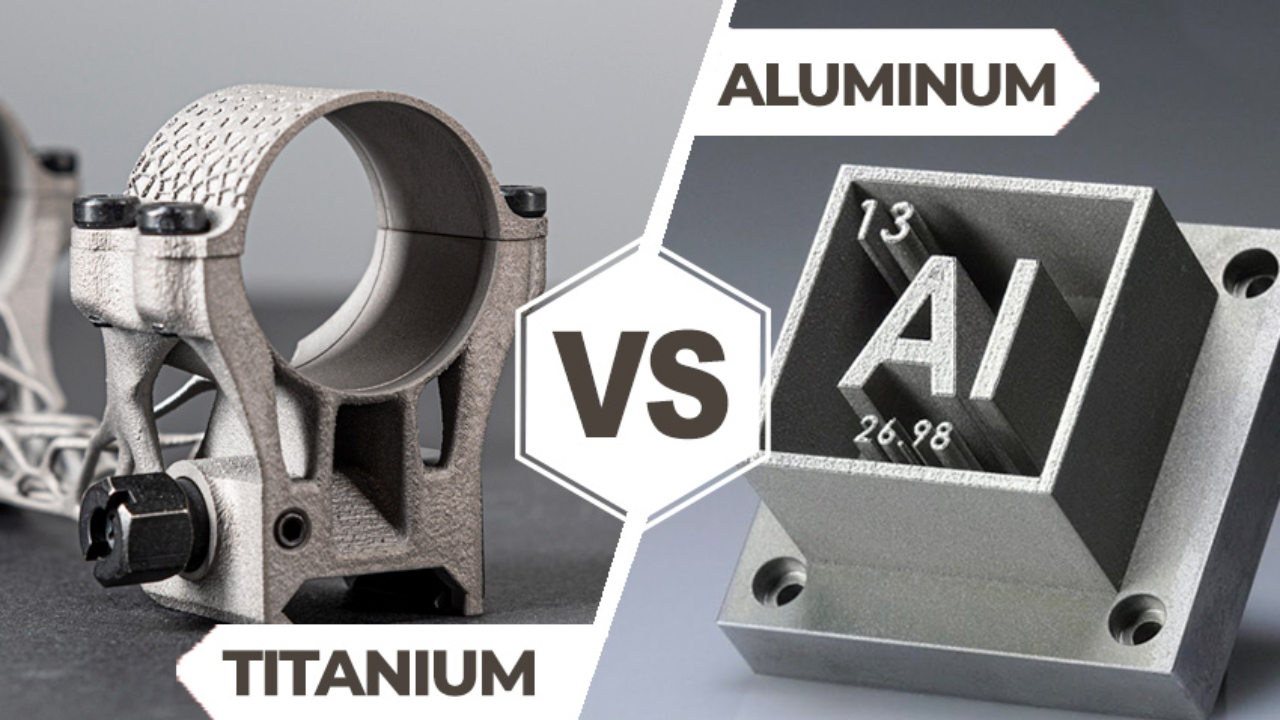Dennis is a hard-working business professional who enjoys spending time with his family and friends. He likes to stay active, and loves playing sports. Stephanie is always looking for new challenges and opportunities to grow both personally and professionally.

In recent past, the debate over titanium vs aluminum has rises incredibly in multiple industries including construction, aerospace, and consumer products. Each metal has its own flair and advantages that suit different applications. This article will compare titanium and aluminum and discuss which metal would be best suited to serve you based on their properties.
1. Material composition and characteristics
Titanium
Titanium has an amazing high strength to weight ratio that makes it a material of choice for fast and demanding applications. This makes this property excellent for extreme operation while maintaining a low mass. But in addition, titanium has excellent resistance to corrosion. It can endure temperatures so extreme that its structure does not fall apart. It is biocompatible and non toxic for medical application as implant and surgical instrument.
|
Sr. No. |
Property |
Titanium |
Aluminum |
|
1 |
Atomic Number |
22 |
13 |
|
2 |
Melting Point |
1668 °C |
660 °C |
|
3 |
Boiling Point |
3287 °C |
2519 °C |
|
4 |
Hardness (Mohs) |
5-6 |
2.5-3 |
|
5 |
Electrical Conductivity |
Low |
Good |
|
6 |
Thermal Conductivity |
Low |
Good |
|
7 |
Oxidation State |
+2, +3, +4 |
+3 |
Aluminum
It is known that aluminum is lightweight, and malleable. But with its lower density relative to titanium its significant weight reductions are possible in applications where the weight is crucial. Aluminum opstens a thin oxide layer naturally when exposed to air, and offers excellent corrosion resistance. It’s suitable for many environments but the oxide layer eventually wears away.
2. Strength and Durability
Titanium’s Superior Strength
Titanium performs well when force counts. Due to its high strength under high stress and load conditions, this metal becomes the metal of choice for various structural components in aerospace and automotive industries. Because of its superior tensile strength, titanium can resist harsh conditions without deforming or failing.
Aluminum’s Moderate Strength
Aluminum has good strength for most everyday work but it might not be appropriate for situations that produce high stress. While aluminum is highly durable, it is more likely to deform more easily under intense pressure than titanium. Its lack of extreme strength, however, makes it less suitable for applications that require such high strength.
3. Weight and Flexibility
Aluminum’s Lightweight Advantages
Aluminum’s low density greatly assists weight reduction in applications where weight reduction is critical. Due to its flexibility, this metal can be formed into complex shapes to aid in manufacturing processes. However, it is widely used in industries where lightweight components can contribute to improved fuel efficiency and performance.
Titanium’s weight and strength balance
Although titanium is heavier than aluminum, it offers a solid compromise between weight and durability. It has a far greater strength to weight ratio and as a result performs extremely well in extreme conditions. Therefore, titanium is a logical choice for use in applications in which strength cannot be compromised, even if there is a slight increase in weight.
4. Cost and Affordability
Aluminum’s Cost-Effectiveness
Affordability is one of the biggest pluses of using aluminum. This puts aluminum as generally more cost effective and readily available than titanium. Because its production and processing costs are lower than other options in both volume and price ranges, industries, particularly those that demand materials with good performance at modest price tags, benefit from using PET. Other programs of usage benefit from aluminum’s accessibility.
Titanium’s High Cost
However, titanium’s superior properties cost more. Titanium has a high overall cost because of the complexity involved in its extraction and refining. In industries that need titanium, the investment needed to use the more expensive material has to be weighed against the benefits of its performance.
5. Corrosion Resistance
Corrosion resistance is simply a strong point for titanium. And it’s largely dark matter, unaffected by saltwater, chemicals, and harsh environments. Therefore titanium is a good choice for very extreme applications as marine environments or chemical processing plants. It resists corrosion and hence you do not have to change it frequently.
Aluminum does resist corrosion, but does so through a thin oxide layer of protection. But this layer can wear off over time, especially in difficult environments, and in the years, aluminum will not be as durable to corrosion as titanium. Titanium is a better choice in such applications because it will not corrode in such content.
Conclusion
In choosing titanium and aluminum, one can’t get away with simply looking at the strengths, weights, costs, and corrosion resistance of the metals. Titanium is much strong & corrosion resistant than Al, making it suitable for demanding application. On the other hand, aluminum is light, affordable, and bendable for use with everyday things. So carefully take a look at pros and cons of each material to determine the best fit for you.
